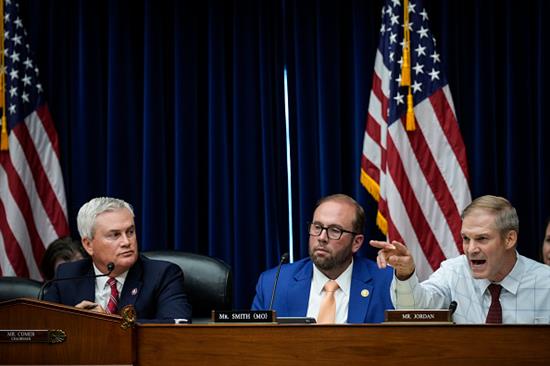Press Releases

House Republicans Are Preventing Noncitizens From Voting & Protecting Americans’ Right To Financial Privacy
Washington,
May 23, 2024
Today, House Republicans will bring to the floor H.R. 192, which would bar noncitizens from voting in D.C. local elections for public office, including any ballot initiative or D.C. referendum, and repeals the Local Resident Voting Rights Amendment Act of 2022.
The Local Resident Voting Rights Amendment Act of 2022, unconstitutionally allows non-citizen residents, including green card holders, illegal immigrants, and other non-citizens who have lived in D.C. for at least 30 days, to vote in local elections. FACTS ABOUT H.R. 192, AN ACT TO PROHIBIT INDIVIDUALS WHO ARE NOT CITIZENS OF THE UNITED STATES FROM VOTING IN ELECTIONS IN THE DISTRICT OF COLUMBIA (Courtesy of the House Committee on Oversight and Accountability Republicans):
Today, House Republicans are also bringing to the floor H.R. 5403, the CBDC Anti-Surveillance State Act, which protects Americans’ right to financial privacy by halting unelected bureaucrats from issuing a central bank digital currency (CBDC). A CBDC is a Communist Chinese style surveillance tool that can be weaponized to oppress the American way of life. The CBDC Anti-Surveillance State Act was first introduced by Majority Whip Tom Emmer (R-MN), and prohibits the Federal Reserve from issuing a CBDC directly to anyone and from using a CBDC as a tool to implement monetary policy and control the economy. FACTS ABOUT THE CBDC ANTI-SURVEILLANCE STATE ACT (Courtesy of the House Committee on Financial Services Republicans):
|

